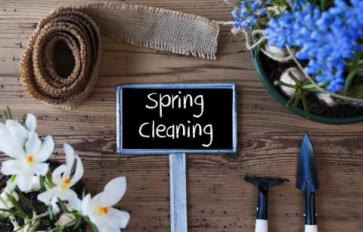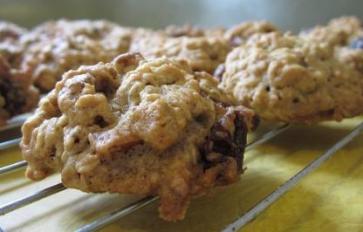
Does your dog lick his paws, scratch his ears, or sport visible dandruff? Skin conditions and itchiness can be caused by a wide variety of reasons, including allergies, hormonal imbalances, environmental toxins, and insect bites. If your pet is always itchy, take him or her to the vet to determine the root cause. For everyday dirty hair or fur, try out these easy homemade (not to mention holistic) shampoos and soaps to keep your pup clean, happy, and smelling good.
Pet Shampoo
If you’ve ever used human-grade shampoos on your dog, only to find him or her itchy and flaky following the bath, you might be upsetting the delicate balance of your dog’s skin. Human-grade shampoos can be disastrous for your dog, mainly due to differing pH levels. As this article from the American Kennel Club explains, dogs have a neutral pH level, somewhere between 6.2 and 7.4; human-grade shampoos are far more acidic and can cause irritations. Instead, look for a pet shampoo without the toxic ingredients and with products that can naturally benefit your pet’s skin.
Luckily, pet shampoo doesn’t have to cost a lot, especially if you make your own. Most recipes call for a basic soap, like castile, to be mixed with diluted vinegar. For a try-it-yourself recipe, use a ratio of soap, vinegar, and water as 1:1:2. While white vinegar works, try apple cider vinegar to better balance your dog’s pH levels.
If you’re stuck without access to a bath, shampoo, or any other type of dog-grooming necessity, you can always use baking soda. Use as you would a dry shampoo, sprinkling a fair amount over your pet’s fur, then brushing or dusting out. Ensure you don’t go too near the eyes, nose, or ears.
Botanical Remedies
Now that you have a base recipe, you can get creative as you tackle your pet’s individual problems head-on.
Oatmeal
For dogs with dry, itchy coats, a bath or shampoo with oatmeal can be a helpful aid. Allergy Dog Central provides two methods for a DIY bath where your dog soaks in oatmeal-water, but you can simply add ground oats to a shampoo recipe.
Aloe
Have you ever slathered on aloe after a day in the sun? Aloe is a terrific choice due to its anti-fungal, antimicrobial, and anti-inflammatory properties, as Dogs Naturally magazine points out. Look for aloe in health food stores and ensure it is 99% pure and organic; many brands contain toxins and unnecessary preservatives. Of course, it is always possible to make your own aloe by purchasing the raw plant at a grocery store or farmer’s market. Look for fresh aloe plants, but be sure to avoid the saponins by scraping the gooey aloe and avoiding yellow or orange sap-like residue, as this article warns. Apply fresh to any particularly sensitive areas, or mix with a basic shampoo recipe, rinsing as normal.
Essential Oils
Essential oils can provide an array of benefits depending on the essential oil being used, but they can also have some serious side effects, so do your research with due diligence. Not sure where to start? Here’s a list of safe essential oils. Is your dog anxious? Nervous? Add a few drops of lavender. Is your pup smellier than normal? Try eucalyptus. Does your canine pal suffer from itchy skin? Add chamomile for instant calming and cooling.
Coconut Oil
Coconut oil has become a cure-all, and for good reason. It’s anti-fungal, antimicrobial, and, best of all, super moisturizing. Use the basic shampoo recipe above, but add roughly 1 tablespoon of coconut oil to a 16 oz. bottle of shampoo.
Paw Pads
Does your dog lick his paws after walks? Your dog might be picking up environmental toxins, salt that is used to prevent slipping after snowfall, itchy vegetation (like burrs or thistles), or even dealing with cracked or burned paw pads. The best choice is to avoid walking your dog on hot cement or sidewalks when the temperature heats up, but the next best step is to moisturize your dog’s paw pads, much like you might lotion dry parts of your body. Upcoming completing your walk, make sure you rinse off your dog’s paw pads. Next, apply a homemade lotion. Coconut oil works well here, as does Shea butter. Simply take a small scoop and rub it gently into each of your dog’s paw pads.
Here’s to keeping your pup happy!








